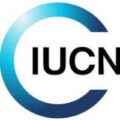Programme Officer – Climate Change, Safeguard & Gender
JOB DETAIL
|
In Nepal, IUCN’s project portfolio covers protected areas, water and wetlands, climate change, and species conservation. IUCN Nepal serves as the Technical Assistance provider for the GCF funded – Gandaki Basin Climate Resilient Project (GBCRP). The Project Execution Support Unit (PESU) is housed in IUCN Nepal to support the Project Management Unit (PMU) for the execution of project activities.
• Under the guidance of the Project Team Leader-GBCRP, provide support for planning and execution of the GBCRP activities, related to safeguard and gender. More specifically,
o Participate in different consultation meetings and if necessary, facilitate and lead the consultation process.
o Provide ESMS and Gender related training for all project staffs and other relevant stakeholders.
o Compile a summary of key domestic legislative, regulatory and administrative regimes and environmental management and due diligence procedures relevant for the planning, approval and implementation of activities and ensure compliance.
o Conduct Rapid social analysis, develop a Stakeholder Engagement Plan (SEP), establish and monitor project-level Grievance Mechanism etc as per project document.
o Develop detailed TOR and lead the process to hire service providers for ESIA/SIA or targeted impact assessments or gender as per need;
o Support to form multi-sectoral/thematic task teams for consultations at different levels for effective execution of the activities;
o Provide necessary support to IUCN Regional ESMS Focal Point for ESMS clearance of sub-projects;
o Prepare annual monitoring reports on implementation of sub-project safeguard and gender;
o Participate in different consultation and capacity building activities and if relevant facilitate and lead the process;
o Regular coordination with project partners and field execution Offices for activities implementation;
o Maintain proper documentation of the project related documents.
• Provide support on programme development and implementation of other IUCN ongoing projects.
• Undertake any other task assigned by the Supervisor or the Country Representative.
| • Master or equivalent degree preferably in environmental management, forestry or related fields
• Minimum of 5 years of experience working on project implementation, preferably in the field of biodiversity, forestry, climate change and non-profit or development sector. At least 3 years of which should be in planning and execution of safeguard and gender related activities. Preference will be given to candidate who has experience of coordinating with government organization. • Work experience in multi-disciplinary groups. • Willingness to frequently travel within the country, sometimes at short notice. • Computer literacy in MS Office packages. • Excellent organizational and networking skills, team-oriented attitude, problem solving skills and ability to work independently. • Highly organized, detail-oriented, and self-motivated with the ability to multi-task and prioritize needs. |
Applicants are requested to apply online through the HR Management System, by opening the vacancy announcement and pressing the “Apply” button.
Applicants will be asked to create an account and submit their profile information. Applications will not be accepted after the closing date. The vacancy closes at midnight, Swiss time (GMT+1 / GMT+2 during Daylight Saving Time, DST). Please note that only selected applicants will be personally contacted for interviews.
Other job opportunities are published in the IUCN website: https://www.iucn.org/involved/jobs/
About IUCN
IUCN is a membership Union uniquely composed of both government and civil society organisations. It provides public, private and non-governmental organisations with the knowledge and tools that enable human progress, economic development and nature conservation to take place together.
Created in 1948, IUCN is now the world’s largest and most diverse environmental network, harnessing the knowledge, resources and reach of more than 1,400 Member organisations and around 16,000 experts. It is a leading provider of conservation data, assessments and analysis. Its broad membership enables IUCN to fill the role of incubator and trusted repository of best practices, tools and international standards.
IUCN provides a neutral space in which diverse stakeholders including governments, NGOs, scientists, businesses, local communities, indigenous peoples organisations and others can work together to forge and implement solutions to environmental challenges and achieve sustainable development.
Working with many partners and supporters, IUCN implements a large and diverse portfolio of conservation projects worldwide. Combining the latest science with the traditional knowledge of local communities, these projects work to reverse habitat loss, restore ecosystems and improve people’s well-being.


